I'm Just Going to Say It: Rome is Awful
Cappuccino fully expects to find a flaming bag of dog poo on its doorstep
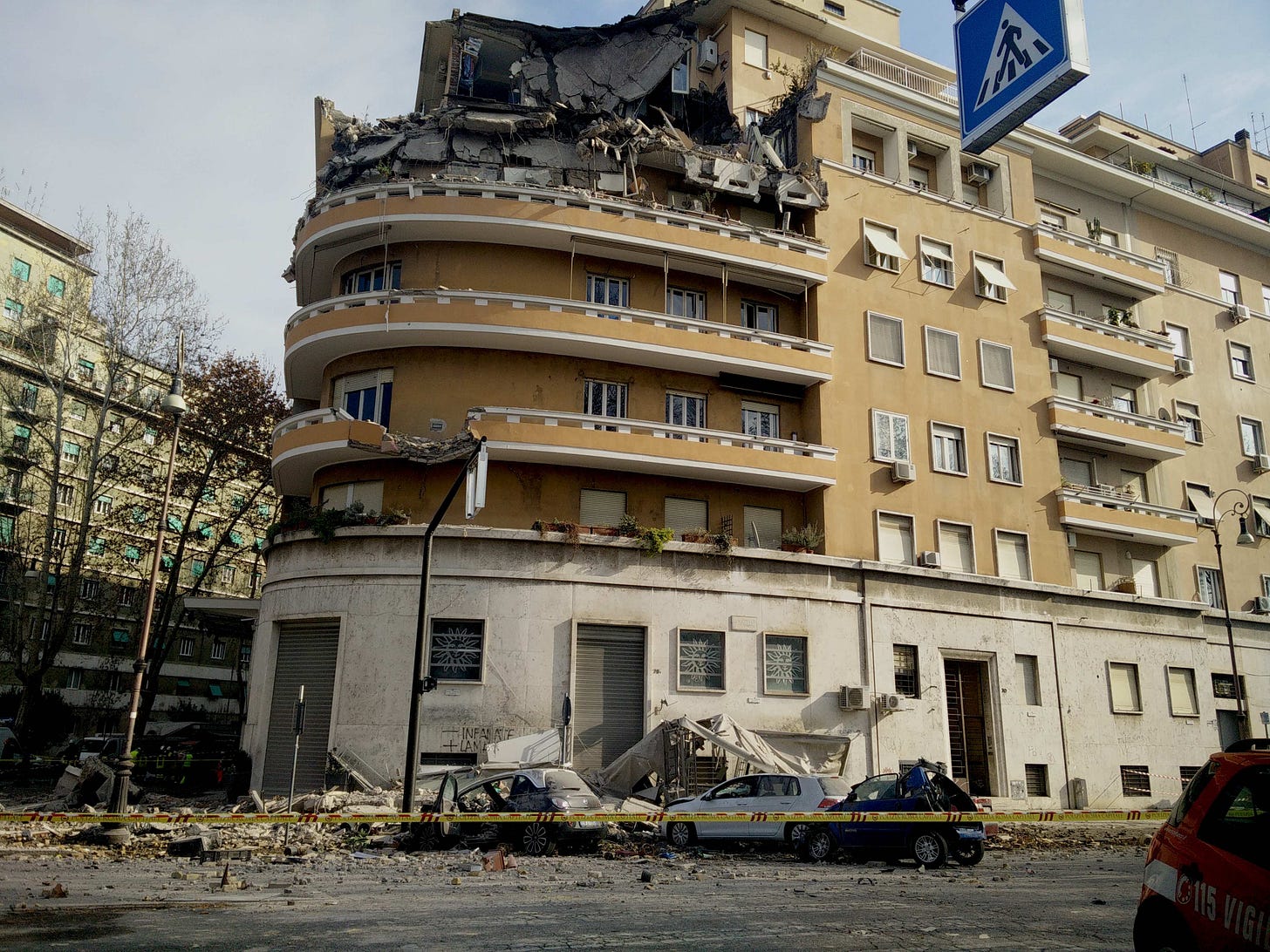
We tackle some hard truths here at Cappuccino. There have been at least a dozen times when I’ve quaked before the enormity of my subject matter, finger poised over the SEND button, wondering what it is exactly that makes me incapable of keeping my mouth shut.
But then I remember that you’re not here to get the whitewashed version of anything. You’re here for information and perspective, even perspective you disagree with.
So, I say let’s do this thing.
First, for those of you who live in Rome and those of you who don’t but love it, this is not an indictment of your choices. We can hold these truths to be self-evident: Rome is both awful and glorious. Its monuments, ruins, Renaissance palazzi, and museums are a testament to her history, beauty, and power. It’s not for nothing that Rome preens her feathers on being The Eternal City.
Her museums are well worth the misery of getting to them, even though Rome does her best to thwart you. She’s got a sense of humor, that girl. Nothing makes her laugh harder than watching you fight your way across town at 4PM on a Friday. But only a smattering of old-school Roman trattorias have survived gentrification.
Rome is overrun, overpopulated, overpriced, and overrated.
The historic center of Rome is, of course, the crown jewel of Italy. It’s where Papa Francesco holds court inside la Città del Vaticano, or Vatican City, which most visitors don’t realize is its own city-state within Italy, and as such, is under the full sovereignty of the Holy See. It has its own postal system, its own bank, and is supported financially by donations made by the faithful, in addition to millions of euros in museum fees and its substantial real estate holdings—4,051 properties in Italy, 1,120 abroad, for a grand total of 5,100, plus embassies.
That’s a whole lotta patrimony right there.
Clearly, there’s a lot to see. And when you have stars in your eyes because you’re in Italy, and Italy just naturally puts them there, it’s easy to overlook some of the defects I’m about to describe. But I don’t know a single person, not one, who loves living in Rome or even going to Rome. Not these days. Not for at least a decade. John returned from Rome last night and had an absolute meltdown about the traffic, the noise, the trash, the appalling numbers of people, broken sidewalks, broken roads, the expense, and surprisingly, the ugliness. A friend of mine, also in Rome, couldn’t wait to come home, and for many of the same reasons. Once you leave the historic center, it’s all downhill: Via Tuscolana, Via Casilina, Prenestina, Via Appia Nuova, the Salaria, Via Tiburtina, etc., are hideous. But even the historic center is buckling beneath the weight of crushing hordes of tourists. They’re everywhere at once, milling around Vatican Square, teeming across the Ponte Vittorio Emanuele, crowding the Trevi Fountain, queuing to visit the Colosseum. It’s hard to appreciate works of art when all you see is the back of somebody’s head.
It’s not just tourists that are mobbing Rome. Young people from Southern Italy have been flooding into the city since after the war. Who can blame them? Opportunities for work are few and far between, even in Rome. Imagine how difficult things are for young people in places like Naples, Sicily, Puglia, and Calabria. Rome is a business center, not unlike Milan, so of course there are plenty of people who either live in Rome or commute there. Hundreds of thousands of students attend university, especially its primary institution, La Sapienza. And then there are a dwindling but not unsubstantial number of Romans whose apartments have been handed down from one generation to the next, and they aren’t budging.
All in all, that’s 4,298,000 souls, all crammed inside an area of less than 500 square miles. Now, salt in nine million international tourists each year. You read that correctly: nine million. And that, in a nutshell, is why Rome has become a dirty, smelly, bloated carcass of a city with too many people and too few controls on its unsustainable amounts of tourism. No one can resist those tasty tourist euros. No one can afford to.
So, problem number one: there are too many people.
Problem number two: trash.
A friend of mine lives in Rome’s most popular rione, which is Trastevere. By 2AM, the streets are ankle deep in refuse. And it’s not just the tourists who are trashing them. Italians have a strange, paradoxical habit of keeping their houses immaculate but their streets dirty. I’ve always said they would benefit from the kinds of Public Service Announcements I grew up with. Americans of a certain age will remember, as I do, the Native American with a tear trickling down his cheek. That powerful, anti-littering image works. All waste abatement campaigns do because they remind us that as we are responsible for the problem, so too are we responsibility for the solution.
The concept of taking responsibility, however, is a bird of a different color here in Italy. This is a point-the-finger, pass-the-buck culture. No one falls on his sword in this country. For that kind of self-sacrifice and personal accountability, you’d probably have to go to Japan. One administration after another fails to get on top of that mountain of trash. It overflows dumpsters during the hottest days of summer, emanating an unbearable stench. It clogs the Tiber and settles around the base of famous monuments. Just as there are no public restrooms in Rome, there are shockingly few trash receptacles. All the eye can see on some days is trash in places where no trash should exist. It feels so careless and disrespectful—also gross. Rome has a rat problem. Fifteen million of them, to be precise. There are likely more rats than people in this country’s capital.
Why so many? The trash.
Quante bella Roma? I don’t think so.
Problem number three: palazzinari. After the war and the mass migration of Italians to Rome, housing was urgently needed. An unscrupulous breed of builder sprang up in that vacuum called palazzinari. The term is derogatory, especially since the buildings are ugly, not built according to any safety standard, mostly illegal, and originally intended for students, single parents, the elderly, and the economically disadvantaged. Instead, they are dialed out like playing cards to friends, relatives, and colleagues. Many of these cases are under investigation, but they will take years to resolve. More to my point, these buildings are unworthy of Rome.
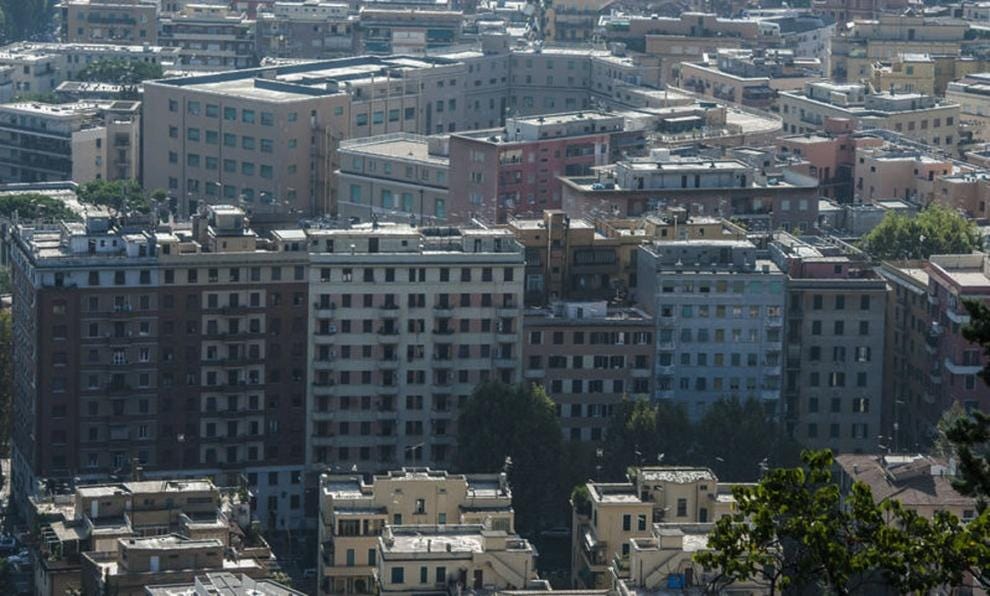
As is true of most modern cities, real estate speculators in Rome (many of them Mafia-connected) don’t just own property. They own banks, bankers, financiers, newspapers, journalists, political parties, ministers, archbishops, mayors and architects. It is they who have sullied this once beautiful city, who have turned it into a dumping ground. One trip down the Salaria, for instance, and what do you see? Junkyards littered with spare parts, do-it-yourself advertising signs, gas stations, smells of an uncertain nature, and “beauty centers” staffed by Eastern European sex workers who are most likely trafficked.
Rent control for commercial space would bring back the artisans, gallerists, negozi, shoe repairs, and furniture designers that made Rome’s streets so charming. As matters stand now, there is one tchotchke joint after another, all selling cold water, cheap plastic replicas of the Colosseum, and “hot priest” calendars. There’s a Starbucks near the Vatican. Also a McDonald’s. How much more abuse can one city take?
Rome deserves better. Rome deserves to be cleaned up, repaired, protected, loved, and valued. I have Roman friends who say the problem is actually Romans—a sentiment echoed by this writer here. I’m not prepared to go that far, but I will say this: Rome is more important than the people who live there. I hold her to a higher standard than any American city because Rome is more important than any American city (except, perhaps, New York). She must be restored as the bastion of art, culture, history, and beauty that she once was; otherwise, this cradle of civilization will be lost to the world forever.
If this sounds harsh, I apologize. Only the deepest love and regard would compel me to speak such a prickly truth.
Sometimes it takes an outsider to remind the insiders that their diamonds are in desperate need of a polish. We’ve tried begging, reasoning, politicizing, protesting, and persuasion to effect change.
Now, perhaps, we will need to use shame.
Copyright © 2022 Stacey Eskelin
What are your thoughts? I’m prepared for pushback, but I would love for it to be intelligent pushback. Give it your best shot.




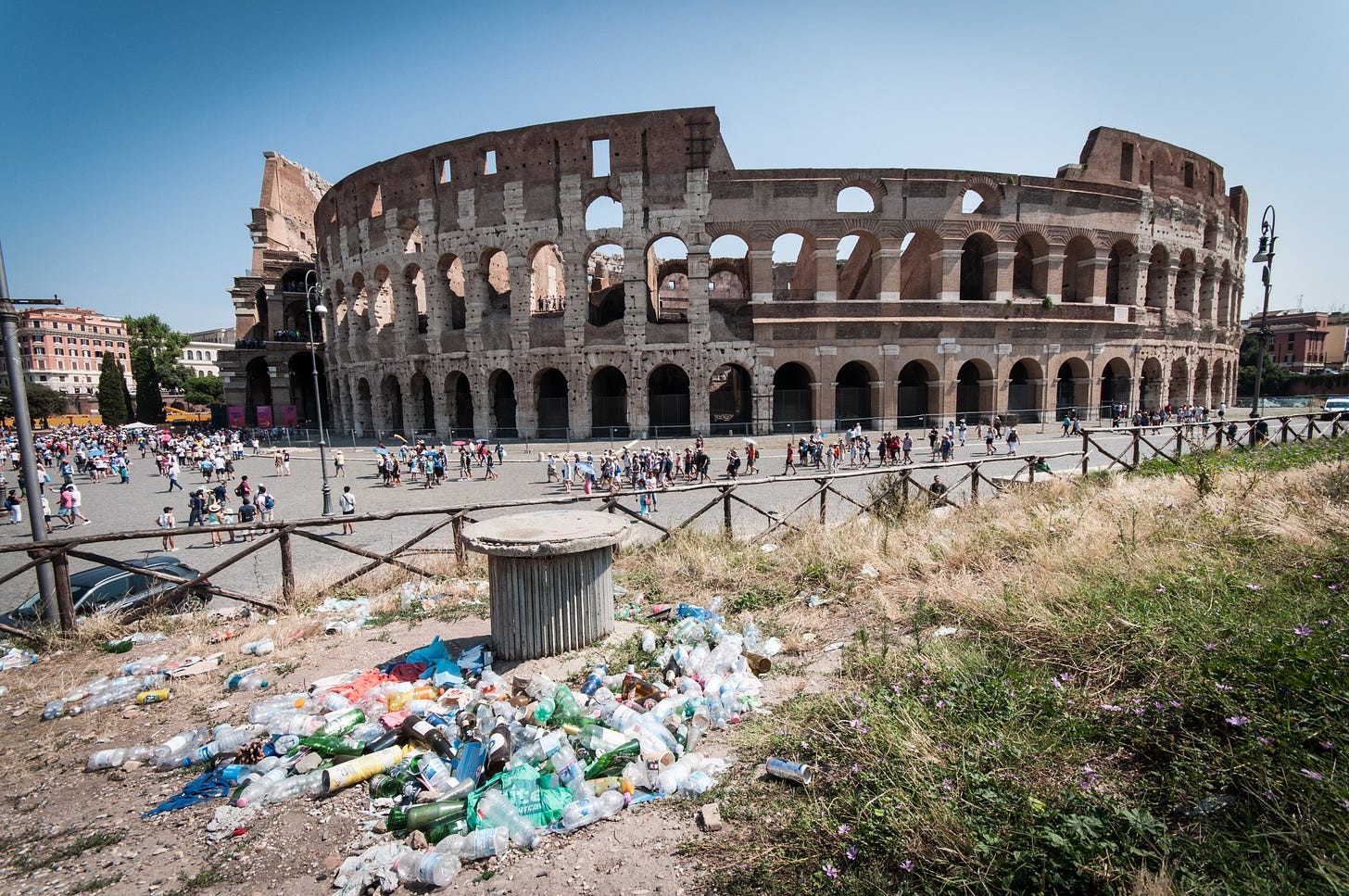
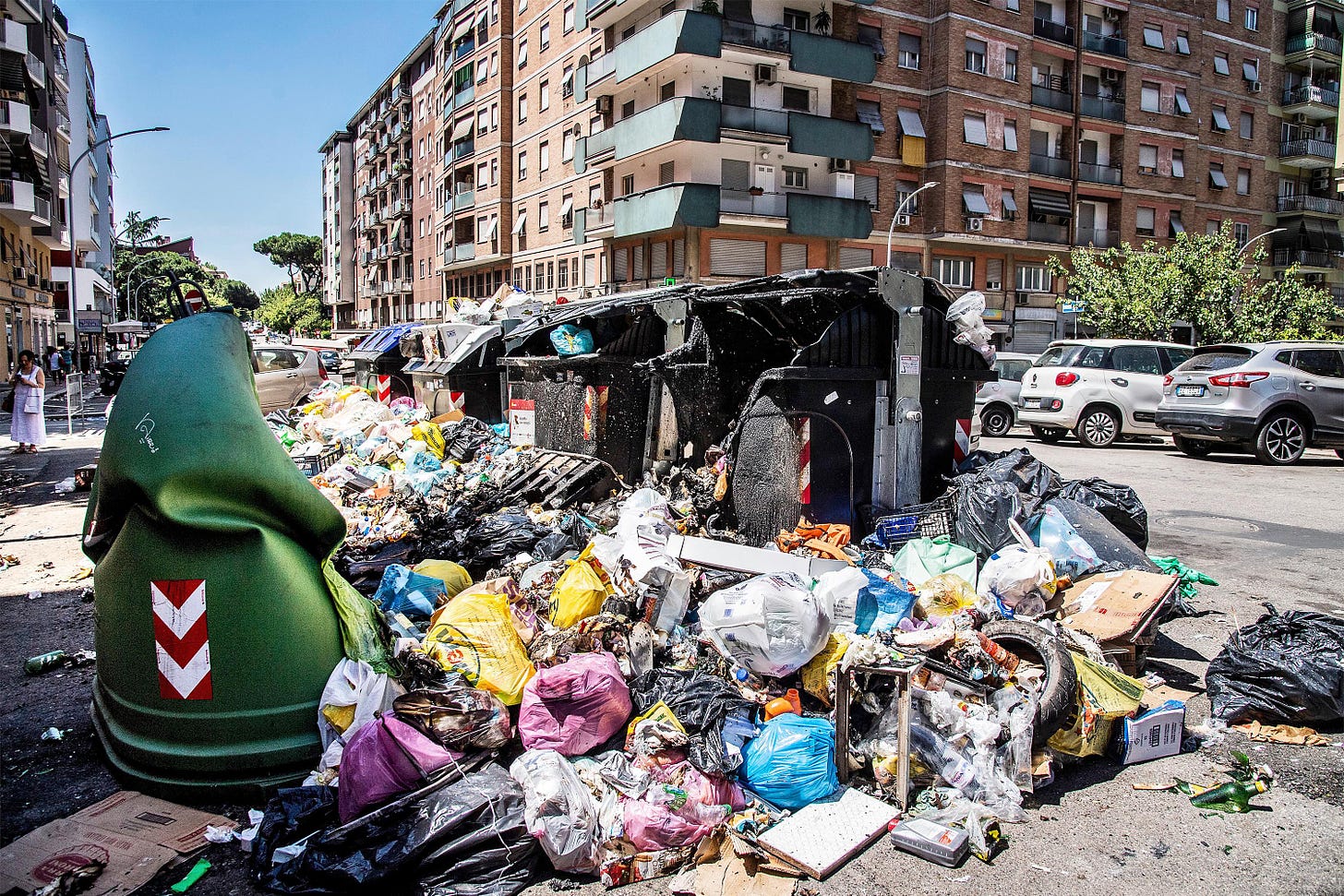
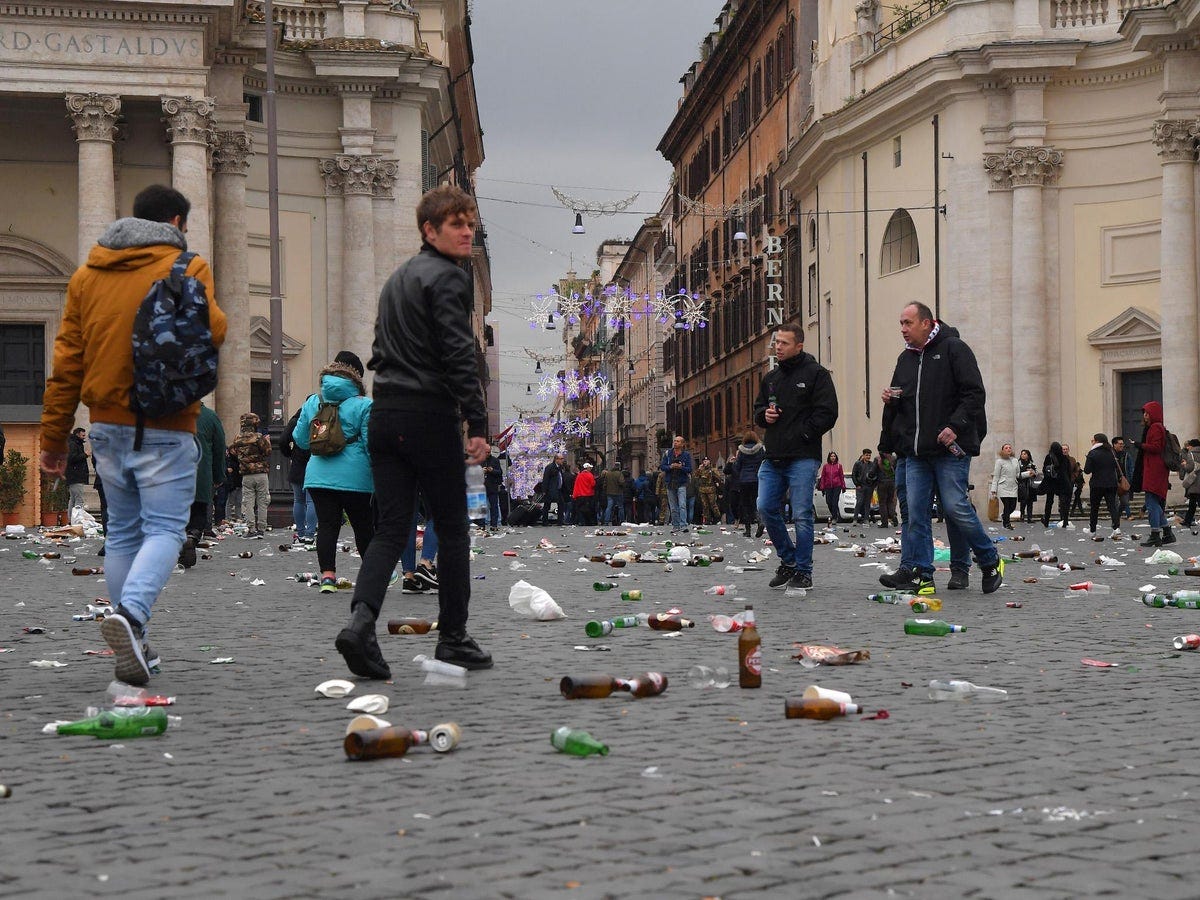
Stacey, you're absolutely right, of course. But oh how this hurts my heart. Che vergogna!
what makes the people of rome, nyc, san diego, la tolerate filth; what makes peple of vienna, heidelberg, denmark keep things clean.